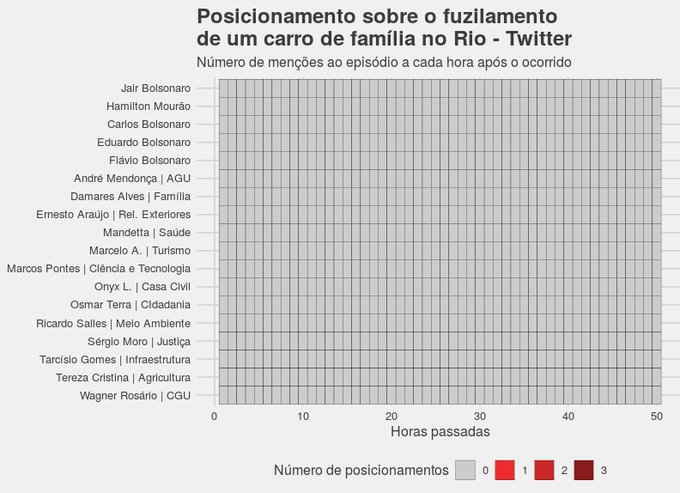On April 7, a Sunday, musician Evaldo dos Santos Rosa, 51, was on his way to a baby shower in Guadalupe, a poor neighborhood in the city of Rio de Janeiro. In the car with him were his father-in-law, his wife, their 7-year-old son, and a friend. The sun was up, and it seemed like a regular weekend in Brazil's largest coastal city.
The police, which inspected the scene, later
revealed the car was shot 80 times. Leonardo Salgado, police chief, said he believed the officers mistook Evaldo's car to another one used by criminals which they were after, according to
news website G1. He added that police didn't find any weapons on Evaldo's car.
The neighbors started to help (my husband), but [the soldiers] kept shooting. I put my hands on my head, cried for help, told them that he was my husband, but they didn’t do anything, the just stood there with debauchery.
While the brutal murder of an innocent man by state officials has shocked Brazil, President Jair Bolsonaro remained silent about the incident for six days.
When he
finally spoke, at a press conference on April 12, he said: “The army didn't kill anyone, the army is of the people, and you can't accuse the people of murder.”
Previously, the only words that came out of Planalto Palace, the executive's seat, was through the president's spokesperson, who
referred to Evaldo's execution as “an incident” without offering condolences to his family.
This is the number of mentions on Twitter by Bolsonaro’s cabinet to the shooting aimed at a family car in Rio de Janeiro. Yes, the graphic is EMPTY, because no one manifested themselves, not even to say they felt sorry for what happened. The car was shot 80 times by military men.
Military investigation
Shortly after news about the episode began circulating in the media, the army put out a statement saying its men were responding to “unfair aggression by assailants.” Later in the evening of April 7, it released a different note, this time saying that it would conduct an investigation.
Although the civil police inspected the scene, they will not investigate the case. The army itself will do it instead, and a military court will eventually try the soldiers. That's thanks to a 2017 law that says armed forces themselves are responsible for investigating homicides committed by their personnel while on duty.
On April 8, the military arrested 10 of the 12 officers who had been deployed to the scene and charged them with homicide and attempted homicide,
according to local newspaper Extra. A judge released one of the 10 officers on April 10 following a hearing.
Not the first time
Brazil's police are known for “shooting first, asking later,” a saying that has been proven right time and again.
A bill dubbed “
anticrime package” which the Bolsonaro's government is proposing in Congress could potentially increase those already-staggering figures. The bill seeks to change several directives that will either scrape or significantly reduce penalties of police and military officers when they kill someone while on duty.
The circumstances of the murder of Evaldo, a 51-year-old black man, is not an exception but the rule in Brazil, as Samira Bueno and Renato Sérgio de Lima, directors of the Brazilian Forum of Public Security,
have said in an article for Folha de São Paulo:
Evaldo has had his life taken from him by those who had sworn to defend it. His son will never be over the trauma of watching his father being shot at by state agents. But let us be clear that the fault lies not only with those who have pulled the trigger. Either we start holding the entire chain of command accountable to their acts, or we will continue to count our dead while discrediting our institutions.
Global Voices.org



Comments